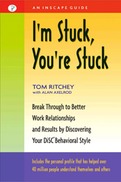BK Blog Post
The Four Black Female Stereotypes (and How They Are Alive and Well Today)
 Posted by
Jeevan Sivasubramaniam,
Managing Director, Editorial,
Berrett-Koehler Publishers Inc.
Posted by
Jeevan Sivasubramaniam,
Managing Director, Editorial,
Berrett-Koehler Publishers Inc.
Tamara Winfrey-Harris’ book answers the question “What is wrong with black women?” with “Not a damned thing!” In The Sisters Are Alright: Changing the Broken Narrative of Black Women in America, Winfrey-Harris writes that though black women’s lives are complicated and varied, four persistent stereotypes, as old as the presence of black people in America, lead to modern women being problematized by society.
These are the four stereotypes:
1. The Mammy
The archetype of the portly, asexual and fierce caretaker, brought to life in “Gone with the Wind,” reinforced the absurdity that black women will bear any burden, not because they have to, but because they live to. Mammy has become the expectation for the way today’s black women should relate to families, partners, churches and employers—giving and never taking.
2. The Sapphire
“Real” (white) women in the antebellum era were thought delicate damsels. Black women, who worked alongside men, were something harder. By the mid-20th century, the hard black woman was angry, too, and a fussing, emasculating wife on “Amos and Andy” became her avatar. No matter how genial or decorous a black woman is, she is suspected of being a rampaging harridan. Just ask Michelle Obama or Hollywood hit-maker Shonda Rhimes, who was called an angry black woman by The New York Times.
3. The Jezebel
The myth of the voraciously sexuality helped antebellum society excuse the routine sexual exploitation of enslaved black women. The persistence of this belief makes black women more vulnerable to sexual assault but less likely to be believed when they are violated. Fear of Jezebel also often causes black women to deny human sexual urges to prove propaganda about them wrong.
4. The Matriarch
The greatest threat to the black community is woman-headed households. The 1965 Moynihan Report, released by the U.S. Department of Labor, said so. Unquestioning belief in that assessment means single black mothers and their children are demonized. And low black marriage rates can be used as a cudgel against black women, while America as a whole is marrying less.






